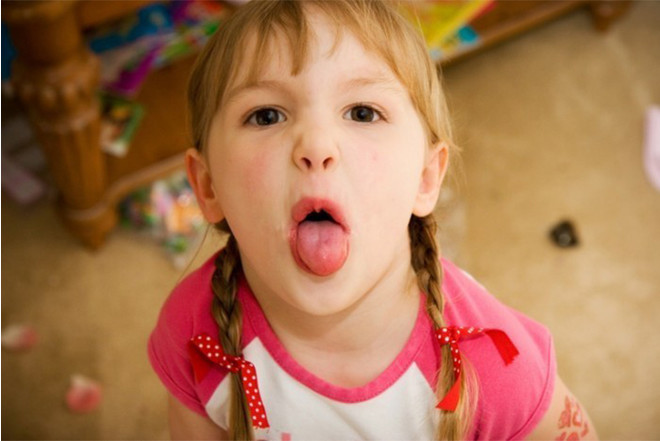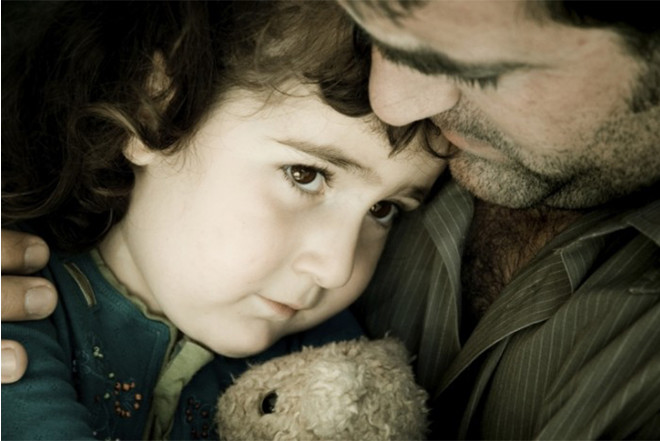 A photo: firestock How strange it may sound, but emotions can not be divided into good and bad. The fact is that all of them are very important to a person, they all benefit. Is “bad” good for you? Fear, for example, can warn of danger. Dissatisfaction, anger make something change in life for the better, prompting to move towards the goal. Due to the emotional richness, a person feels the fullness of life with all its colors. But the behavior caused by these emotions can be good or bad. Unfortunately, not even all adults can control it, let alone children. Woman’s Day offers you the advice of a psychologist, following which you teach your children to cope with anger, fear, resentment and other emotions. Elena Elena, medical psychologist
A photo: firestock How strange it may sound, but emotions can not be divided into good and bad. The fact is that all of them are very important to a person, they all benefit. Is “bad” good for you? Fear, for example, can warn of danger. Dissatisfaction, anger make something change in life for the better, prompting to move towards the goal. Due to the emotional richness, a person feels the fullness of life with all its colors. But the behavior caused by these emotions can be good or bad. Unfortunately, not even all adults can control it, let alone children. Woman’s Day offers you the advice of a psychologist, following which you teach your children to cope with anger, fear, resentment and other emotions. Elena Elena, medical psychologist In life, many situations that cause anger,anger and irritation. The feeling of injustice, actions and actions that are contrary to our principles, disobedience, rudeness can cause a backlash - aggression. Learning to manage your anger is possible only if you understand its cause and control your emotions. Having identified the cause of negative feelings, you need to send them to another direction, that is, the problem must be disassembled, spoken, discussed, and not hidden. It’s impossible to live without anger, these emotions are the protection of our body. We defend ourselves, and this helps us to fight, to achieve success, to move on. How to make aggressive anger non-aggressive? In any situation, you should talk about how you feel, expressing your feelings, you help to get rid of anger and irritation. It should be expressed clearly and briefly. So you, describing your feelings, will let them get out of you. Being able to manage your emotions is important not only for adults but also for children. How well we can control our emotional state affects our well-being and relationships with others. The task of the parents is to teach the child to manage his emotions, to teach him to express his experiences in a socially acceptable form. First of all, he should constantly explain his feelings to the child. Sometimes he himself does not understand what he feels. The task of an adult is to voice the emotions of the baby. At first, when the child is small, the mother can simply automatically call children's emotions: “You are upset,” “You are offended,” “You are angry.” After some time, the child himself will call them. Here, parents should accept and support the child for what he is aware of and calls them, and in no case should he scold him. The very name of emotions reduces the intensity of feelings several times. It is necessary to feel free about your emotions, to encourage and stimulate a conversation about why he is upset. If the child does not have the opportunity to speak about his pain and annoyance, he will throw it out in another way - push the offender, take away the toy, offend the mother and so on. Often innocent people suffer.
In life, many situations that cause anger,anger and irritation. The feeling of injustice, actions and actions that are contrary to our principles, disobedience, rudeness can cause a backlash - aggression. Learning to manage your anger is possible only if you understand its cause and control your emotions. Having identified the cause of negative feelings, you need to send them to another direction, that is, the problem must be disassembled, spoken, discussed, and not hidden. It’s impossible to live without anger, these emotions are the protection of our body. We defend ourselves, and this helps us to fight, to achieve success, to move on. How to make aggressive anger non-aggressive? In any situation, you should talk about how you feel, expressing your feelings, you help to get rid of anger and irritation. It should be expressed clearly and briefly. So you, describing your feelings, will let them get out of you. Being able to manage your emotions is important not only for adults but also for children. How well we can control our emotional state affects our well-being and relationships with others. The task of the parents is to teach the child to manage his emotions, to teach him to express his experiences in a socially acceptable form. First of all, he should constantly explain his feelings to the child. Sometimes he himself does not understand what he feels. The task of an adult is to voice the emotions of the baby. At first, when the child is small, the mother can simply automatically call children's emotions: “You are upset,” “You are offended,” “You are angry.” After some time, the child himself will call them. Here, parents should accept and support the child for what he is aware of and calls them, and in no case should he scold him. The very name of emotions reduces the intensity of feelings several times. It is necessary to feel free about your emotions, to encourage and stimulate a conversation about why he is upset. If the child does not have the opportunity to speak about his pain and annoyance, he will throw it out in another way - push the offender, take away the toy, offend the mother and so on. Often innocent people suffer. Photo: firestock Elena Nikolaeva, medical psychologist
Photo: firestock Elena Nikolaeva, medical psychologist Teach your child to throw out negative emotions,without causing damage - moral and material. Tell him that being angry is normal. But spilling out the negative is needed in “cultural” ways. You can beat a pillow, tear paper, crumple newspapers, do physical exercises (squats, pushups, jumps). You can shout loudly if there are conditions for this, in the forest, for example, or whisper your displeasure in a specially designated place. Someone like to fiercely spray flowers with a spray gun, sculpt anger out of plasticine and crush it. But never let a child beat younger ones, push parents and break toys. And, most importantly, the parents themselves should be an example for him, not to make violent family conflicts, quarrels with smashing dishes. If the parents themselves are calm, balanced, good at people, with an understanding approach to solving the problems of the child, then it will be easier for him to develop the skills of self-control. Do not pass by the upset child. Always ask who offended him what happened - in kindergarten, at school, on the playground. Discuss controversial issues, learn to forgive, instead of looking for the guilty.
Teach your child to throw out negative emotions,without causing damage - moral and material. Tell him that being angry is normal. But spilling out the negative is needed in “cultural” ways. You can beat a pillow, tear paper, crumple newspapers, do physical exercises (squats, pushups, jumps). You can shout loudly if there are conditions for this, in the forest, for example, or whisper your displeasure in a specially designated place. Someone like to fiercely spray flowers with a spray gun, sculpt anger out of plasticine and crush it. But never let a child beat younger ones, push parents and break toys. And, most importantly, the parents themselves should be an example for him, not to make violent family conflicts, quarrels with smashing dishes. If the parents themselves are calm, balanced, good at people, with an understanding approach to solving the problems of the child, then it will be easier for him to develop the skills of self-control. Do not pass by the upset child. Always ask who offended him what happened - in kindergarten, at school, on the playground. Discuss controversial issues, learn to forgive, instead of looking for the guilty. Photo: firestock Elena Nikolaeva, medical psychologist
Photo: firestock Elena Nikolaeva, medical psychologist You can teach a child deep breathing. For example, when he is angry, ask him to take ten deep breaths and exhalations with you. The effect will be noticeable immediately: the child will calm down and relax. If in stressful situations deep breathing is made a skill, then the child will be able to put his thoughts in order before he loses control of himself. Gradually, each person learns to control himself and in most cases to keep a low profile. Awareness of their behavior is formed in childhood, so the sooner a child learns to recognize his emotions and express them correctly, the better. Constantly you are in communication with your child, play, walk, read, design, draw. Try to become the best friend of your child, so that he can talk about all of his problems with you. Managing his emotional state is easy, and everyone can do it. The main thing is to have a desire to do this and make an effort.
You can teach a child deep breathing. For example, when he is angry, ask him to take ten deep breaths and exhalations with you. The effect will be noticeable immediately: the child will calm down and relax. If in stressful situations deep breathing is made a skill, then the child will be able to put his thoughts in order before he loses control of himself. Gradually, each person learns to control himself and in most cases to keep a low profile. Awareness of their behavior is formed in childhood, so the sooner a child learns to recognize his emotions and express them correctly, the better. Constantly you are in communication with your child, play, walk, read, design, draw. Try to become the best friend of your child, so that he can talk about all of his problems with you. Managing his emotional state is easy, and everyone can do it. The main thing is to have a desire to do this and make an effort.

Making Money with Desserts: Success Stories
Evgeniya Polischuk (Fedutinova) instagram:@evgeniyafedutinovavk.com/janeshomebaking– It all started with baking for family and friends. Gradually, I started posting photos of my baked goods on Instagram – and orders started coming in. I made my first custom-made cake on October 13, 2014, and a little earlier I started making macaroons and cupcakes. You could say that the business “found me”, I am very […]

Soups are cold recipes with photos
Cold cucumber soup with yogurt and lemonsorbet from the chef of the restaurant La Taverna Alexander Zhurkin Photo: Getty Images Ingredients: Plain yoghurt – 125 g Cucumber – 150 g Lemon/lime sorbet – 50 g Cocktail shrimp – 24 g Fresh ginger juice – 1 g Lime juice – 5 g Fresh orange juice – 5 g Parsley – 1 g Pink pepper – 1 g Watercress – […]

barbeque kebab
Pork tenderloin in glaze Photo:Dmitry Bayrak/dbstudioPreparation time: 20 minutes + marinating time.Calories: 454 kcal per serving.For 4 servings: 4 pork tenderloins (approximately 300 g each), 1 onion, 2 cloves of garlic, 1 tsp. lemon zest, 1 tsp. lemon juice, a pinch of ground cumin, coriander and turmeric, 1 tbsp. vegetable […]

Pierre Duacan: dietary recipes: Ducane diet
Beetroot soup Photo:Season’S, Luxury Hotels RepresentationYou will need:· Boiled beetroot – 60 g· Fresh cucumbers – 20 g· Red radish – 20 g· Green onions – 10 g· Egg – 1 pc.· Drinking mineral water – 200 g· Salt – 1 gPreparation:· Boil the egg and beetroot.· Grate the cucumbers, radish and part of the beetroot. Put everything […]





